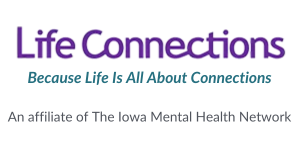Trauma is something we often feel are extreme events in an individual’s life; however, this is not necessarily true. Trauma is identified by the National Child Traumatic Stress Network as any event in an individual’s life where they either witness or are involved in a threatening situation. Check out our article, “Trauma as a First Responder” to learn more. Upon experiencing a traumatic event, individuals respond in different ways. The four typical responses are known as the 4 Fs: Fight, Flight, Freeze and Fawn.
Fight:
Individuals who experience this response to trauma often try to protect themselves by utilizing aggression, both physical and verbal, to establish control over the situation. Often these individuals feel a lack of control in particular situations, therefore, they respond in this way to gain that control. The fight response may be seen as a negative response because individuals tend to be present with aggressive or defiant behaviors.
Flight:
Individuals who experience the flight response attempt to escape the situation. Oftentimes it is hard for an individual to sit still and relax when they are responding to trauma in this form. This may often be presented as hyperactive or obsessive type behaviors.
Freeze:
This form of trauma response refers to the behavior of disassociation. Individuals who experience this form of traumatic response often have a difficult time being around others, making decisions for themselves, and even remembering details of certain events. Individuals presenting this type of trauma response are often seen as being lazy or having depression symptoms.
Fawn:
This form or trauma response is often not discussed or known. This form of response is often called “people pleasing” because it refers to the idea of doing things for others rather than for yourself. Individuals who respond to traumatic events in this form try to be “Good” to avoid getting hurt physically or emotionally. These individuals are trying to do things to gain approval from others. These individuals often feel overwhelmed or anxious.
Strategies to help a child through trauma response:
- Stay calm. Oftentimes children look at adults in a time of need. Try to avoid big tones during times of stress.
- Help children feel safe. Stress is often due to a child’s lack of feeling safe. Help by providing a safe environment for the child.
- Keep Routine. In times of stress it is often easy to go with the flow of situations and throw the schedule out the door. However, it is important to keep a routine, this avoids the unknown of what’s going to happen next.
- Understanding your child’s coping mechanisms. Every child is different and different skills work for different children. Identifying which strategies work best for your child in a non-stressful time will help them during a stressful situation.
- Listen to them.
It’s important to let your child have time to voice their feelings, concerns, and worries without interruption. Allow the space for them to feel comfortable sharing their feelings without judgement or repercussions. Give them that time and acknowledge their feelings.
Are you feeling stressed, overwhelmed, identifying with any of the above responses? Feeling unable to help your child work through these on your own? You are not alone. Life Connections staff can help you or your child work through trauma to turn negative trauma responses into positive responses. Contact us at 877 878 6606 or via email at contactus@life-connections.org
Aspen Felton, MA, LMHC
Because Life is All About Connections
Life Connections provides in-home Behavioral Health Intervention services, Therapy services, autism (ABA) services and Children’s Mental Health waiver services in our 13 office locations and approved schools across Iowa. Life Connections was founded in March of 2009 with the intent to serve the children and families of Cedar Rapids and surrounding cities.
Life Connections is a highly professional and caring counseling and behavioral health provider. We offer a wide array of services to treat mental health issues including Applied Behavior Analysis Services, Behavioral Health Intervention Services, mental health therapy, school-based therapy programs, and substance use treatment.
For more information, please call 319-409-6922.
Resources:
- National Suicide Prevention Hotline 800-273-8255
- Crisis Text line text to 741741
- The Trevor Project – for LGBTQ+ young adult community 866-488-7386
- Rape, Abuse, and Incest National Network 800-656-4673
Start Your Services
Start Mental & Behavioral Health Services with Life Connections | Because life is all about connections.

